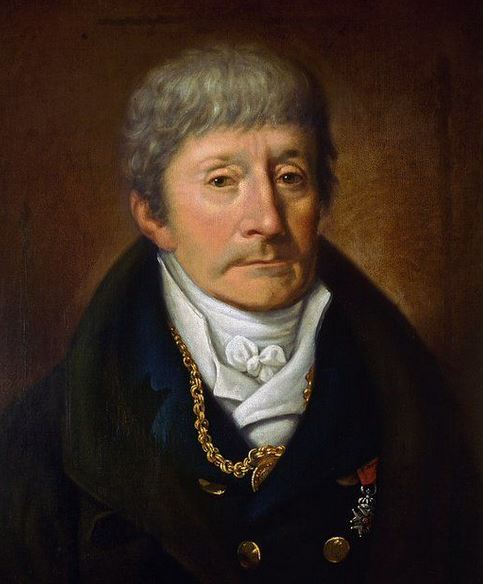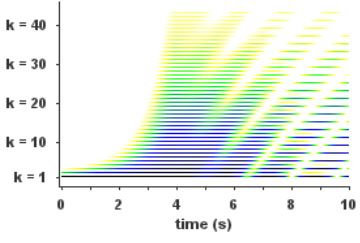Antonio Salieri (1750–1825) was an influential Italian composer and conductor whose life and career were marked by significant achievements in classical music. Often overshadowed by the legend of Wolfgang Amadeus Mozart, Salieri’s contributions to music remain important, and his legacy continues to be recognized for its depth and impact. This article delves into Salieri’s life, works, and enduring influence on the classical music tradition.
Early Life and Education
Antonio Salieri was born on August 18, 1750, in Legnago, a small town in the Republic of Venice (now Italy). His early exposure to music and formal training set the stage for a distinguished career in composition and performance.
- Family and Background: Salieri was the eldest of six children in a family of modest means. His father, Giovanni, was a baker, and his mother, Teresa, supported his musical aspirations. Recognizing his talent, Salieri’s parents arranged for his musical education.
- Musical Training: Salieri studied under the guidance of renowned composers and musicians of the time. His formal training began with local music teachers before he moved to Venice to study with Giovanni Battista Pescetti, a prominent composer and teacher.
- Early Career: After completing his education, Salieri began his professional career in Venice, where he quickly gained recognition for his compositional skills. His early works included operas and sacred music, which garnered acclaim and set the foundation for his future success.
Rise to Prominence
Salieri’s career flourished as he moved to Vienna, where he became a central figure in the city’s vibrant musical scene.
- Viennese Success: In Vienna, Salieri’s reputation grew as he composed numerous operas, orchestral works, and chamber music. His ability to blend traditional and innovative elements in his compositions earned him the respect of his peers and audiences.
- Opera and Theater: Salieri was particularly known for his operas, which were performed extensively throughout Europe. His works, including “Les Danaïdes” and “Tarare,” showcased his skill in crafting compelling musical narratives and complex characters.
- Royal Appointment: In 1774, Salieri was appointed court composer to the Emperor of Austria, a prestigious position that solidified his standing in the musical world. He held this role for many years, influencing the development of classical music in Vienna.
Interactions with Contemporary Composers
Salieri’s relationship with his contemporaries, including Wolfgang Amadeus Mozart, has been a topic of historical interest and speculation.
- Wolfgang Amadeus Mozart: The relationship between Salieri and Mozart is often portrayed as contentious, particularly due to the dramatic portrayals in popular culture. While there were professional rivalries, historical evidence suggests that Salieri and Mozart had a complex, often respectful relationship. Salieri admired Mozart’s talent, though there was competition for commissions and recognition.
- Other Influences: Salieri also interacted with other notable composers of the time, such as Ludwig van Beethoven and Franz Schubert. His influence extended through his teaching and mentorship, shaping the careers of several prominent musicians.
Legacy and Influence
Despite being overshadowed by Mozart and other contemporaries, Salieri’s contributions to classical music have left a lasting impact.
- Musical Innovations: Salieri’s work in opera and sacred music contributed to the development of classical forms and styles. His operas were known for their melodic richness and dramatic intensity, influencing the evolution of the genre.
- Teaching and Mentorship: As a teacher, Salieri trained many future composers, including Ludwig van Beethoven, Franz Schubert, and Franz Liszt. His pedagogical approach and musical insights helped shape the next generation of classical music.
- Historical Reassessment: In recent years, there has been a resurgence of interest in Salieri’s work, with performances and recordings of his music gaining recognition. Scholars and musicians continue to explore his contributions to classical music, providing a more nuanced understanding of his legacy.
Notable Works
Salieri’s body of work encompasses a wide range of genres and styles. Some of his most notable compositions include:
- Operas: “Les Danaïdes,” “Tarare,” and “Axur, re d’Ormus” are among Salieri’s significant operatic works, showcasing his talent for dramatic storytelling and musical innovation.
- Sacred Music: Salieri composed several masses, psalms, and oratorios that demonstrate his skill in writing for choirs and orchestras.
- Symphonies and Chamber Music: His symphonies and chamber works reflect his mastery of orchestration and form, contributing to the classical repertoire.
Antonio Salieri’s life and work represent a crucial chapter in the history of classical music. While often overshadowed by his contemporaries, his contributions to opera, sacred music, and music education have left an indelible mark on the classical tradition. As interest in his music continues to grow, Salieri’s legacy is increasingly recognized for its significance and enduring impact.




